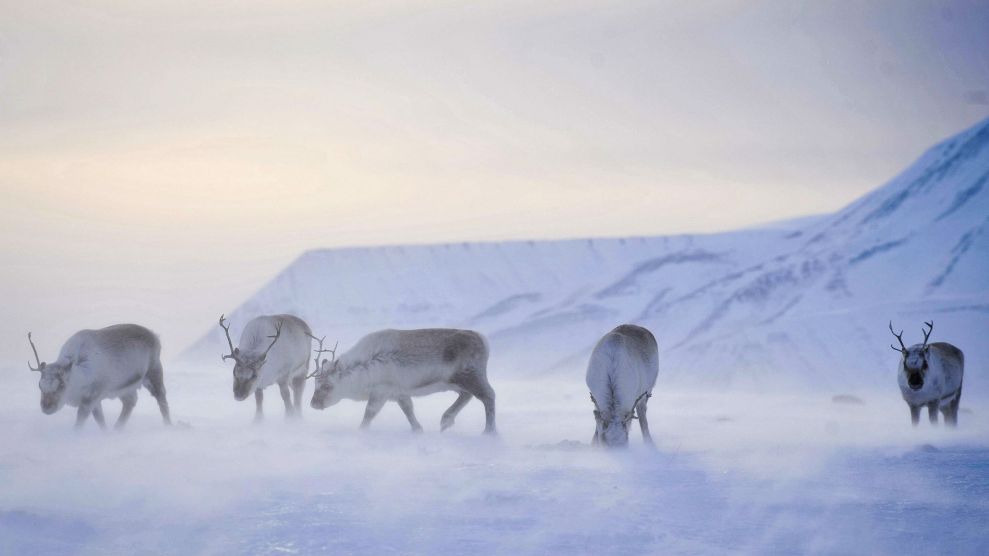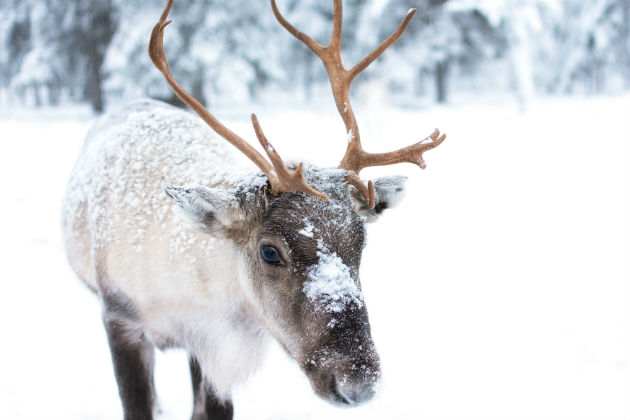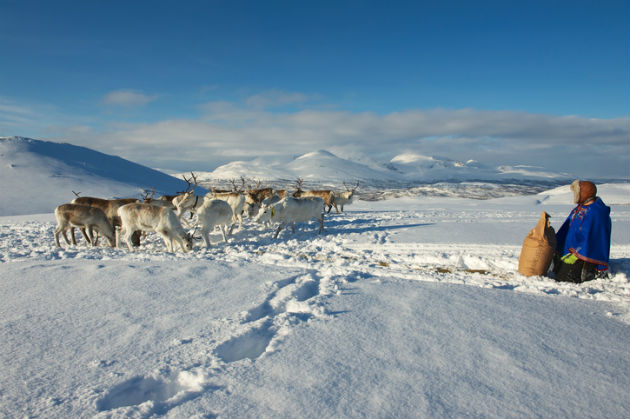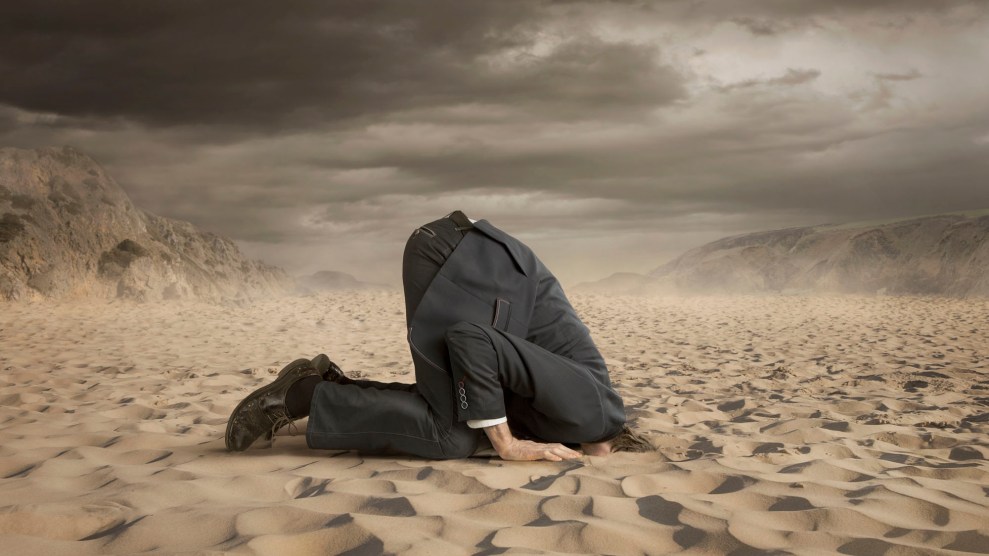
Ben Birchall/AP
Reindeer are getting smaller and lighter as a result of climate change’s disruption to their food supply, researchers revealed during the British Ecological Society annual meeting in Liverpool this week.
The findings come by way of ecologists from the James Hutton Institute, the Norwegian Institute for Nature Research, and the Norwegian University of Life Sciences who have been measuring reindeer in the high Arctic every winter since 1994. According to their measurements, adult reindeer have shown a 12 percent decrease in overall body mass over the years—from 121 pounds in 1994 to 106 pounds in 2010.

Researchers believe the stunted growth of reindeer is directly tied to increasing temperatures in the Arctic—a region particularly vulnerable to warming—over the past two decades. Among several speculated reasons, all linked to climate change, warmer winter temperatures bring more rain, which freezes when it falls onto snow, making it more difficult for reindeer to access food below the ice. For pregnant females, the resultant starvation causes them to abort or give birth to malnourished calves. Over the long term, this could also lead to “extensive die-offs” in the reindeer population, according to lead researcher Steve Albon.
Reindeer aren’t the only victims of a rapidly shifting Arctic climate—those who herd them have also fallen prey. The Sami peoples of northern Scandinavia consider reindeer a linchpin of their cultural identity. Climate change—on top of the existing mental strains that indigenous herders face from social stigma—has contributed to a widespread mental health crisis and mounting suicide rate among the Sami in recent years. According to Sami psychologist and researcher Petter Stoor, half of Sami adults in Sweden suffer from anxiety and depression, and an astonishing one-third of young herders have contemplated or attempted suicide.

As climate change intensifies, the reindeer herders stand to lose not only their livelihood, but also their culture. “We are the nature people,” Frøydis Nystad Nilsen, a Sami psychologist, told the health news site STAT. “When you lose your land, you lose your identity.”















